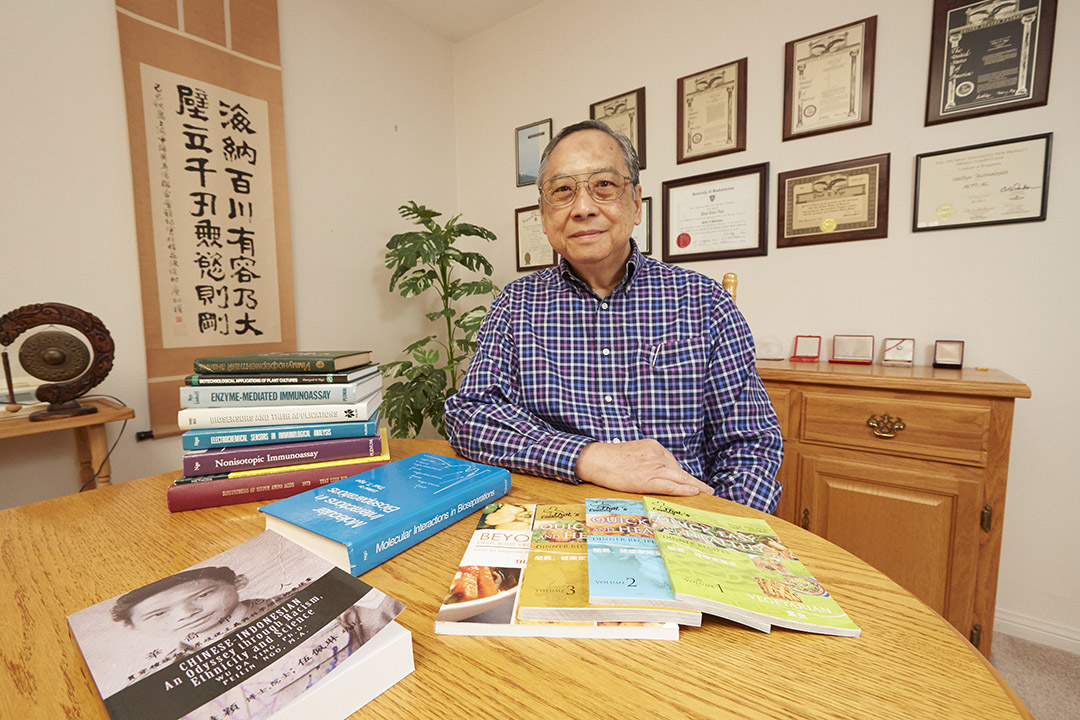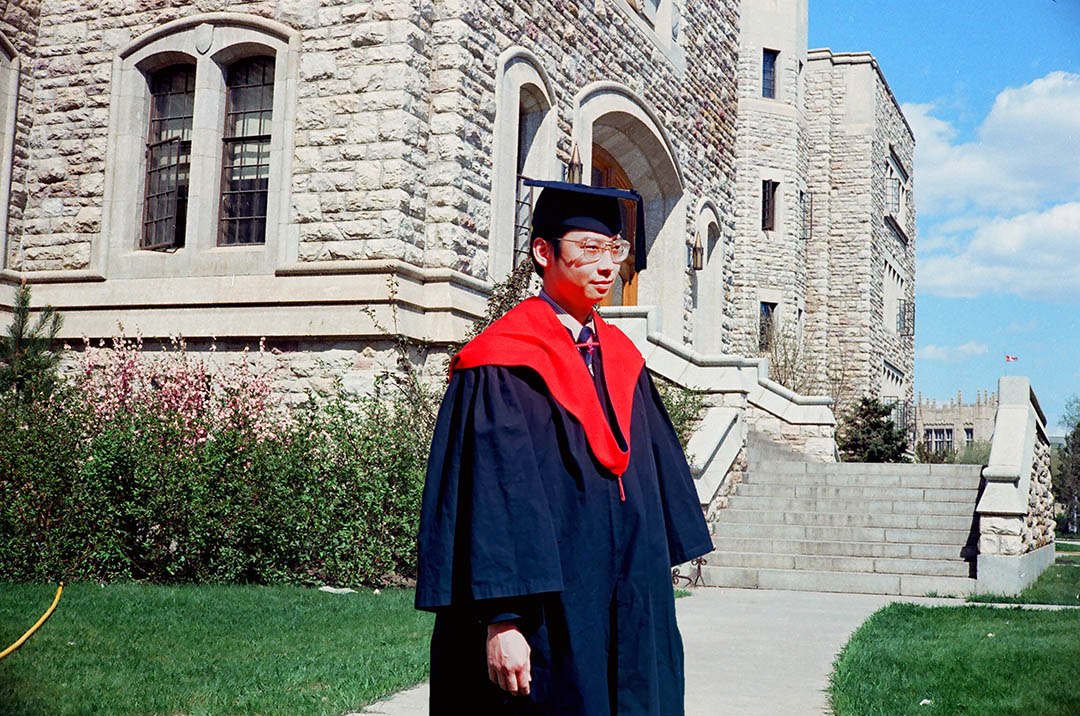
USask alumnus creates travel fund for students
For Dr. That T. Ngo (BSc’69, SC’70, PhD’74), studying abroad was a life-changing experience. It’s an opportunity he wants more students to have.
By Chris PutnamNgo, a celebrated biochemist who came to study at the University of Saskatchewan (USask) from Indonesia, recently established the That Ngo Fund for Study Abroad in the College of Arts and Science. The endowed fund provides support to students who participate in international learning experiences.
“It is my way of giving back to the university. It’s a way to express my sincere gratitude and deep appreciation toward a university that I guess you can say took a chance on me,” said Ngo.
Ngo is a 2020 recipient of an Honoured Supporter Award for National Philanthropy Day from the Saskatoon chapter of the Association of Fundraising Professionals. USask nominated him for the award, which was presented on Nov. 18.
Ngo left Indonesia in 1966 during a tumultuous time. The autocratic leader Suharto had recently risen to power, and Chinese-Indonesians such as Ngo and his family faced increasing racial discrimination under his rule.
When Ngo graduated from a private Chinese-Indonesian high school, the Indonesian government refused to recognize his diploma and he was barred from applying to state universities.
“So I had a choice. I had to go study in the West—either go to Canada or to Germany,” said Ngo.
Unsure where he would end up, he studied both English and German until his application to USask was accepted. He boarded a plane to Canada.
At USask, Ngo struggled at first to understand his professors, but he was soon acing his chemistry classes with the help of local students who loaned him their notes. When the Indonesian government confiscated his family’s business and Ngo lost his financial support from home, one of his Canadian friends helped him get a job in the Murray Library.
“If I hadn’t left Indonesia, I don’t know what would have become of me,” said Ngo. “I just feel so fortunate to have met so many Canadian students that were willing to help me out.

Ngo eventually completed an honours degree and a PhD in biochemistry at USask. He would go on to a successful career as a research scientist and president/CEO of several biotechnology companies.
Ngo was the co-inventor of the Ngo-Lenhoff assay, a technology that enabled the world’s first home-use blood glucose test system. The OneTouch test strips based on Ngo’s discovery—which he never patented—were the industry standard for 25 years.
For his achievements, Ngo was named a fellow of the American Institute of Chemists, the National Academy of Clinical Biochemistry and the Royal Australian Chemical Institute. In 2016, he became one of the College of Arts and Science’s Alumni of Influence.
Ngo believes that everyone can benefit from travel. “I think anybody that goes abroad to study for one semester or one year, they will have life-changing experiences. It will open up their eyes to different ways of life.”
Dr. Peta Bonham-Smith (PhD), dean of the College of Arts and Science, agrees.
“You can read about other countries in books or watch them on TV, but there is no substitute for actually living within another culture. When students travel, they gain invaluable new perspectives that they bring home for the benefit of everyone. We are extremely grateful to Dr. Ngo for providing this opportunity to more College of Arts and Science students,” said Bonham-Smith.
International learning experiences are increasingly becoming a core part of the undergraduate student experience in the College of Arts and Science, with several goals in the college plan devoted to increasing study abroad opportunities.
Ngo donated the initial funding to establish the That Ngo Fund for Study Abroad and contributes annually to grow the fund. He believes that students who take advantage of study abroad opportunities will gain skills that will help them in a global age, including creativity, adaptability and language skills.
“I think those kinds of skills will be quite valuable for the new, more competitive work environment,” said Ngo, who now lives in California.
He also hopes that growing opportunities to experience other cultures will lead to greater understanding and tolerance between nations.
“I want University of Saskatchewan students to understand that their foreign counterparts have the same aspirations for a higher education. I think by doing so, they will appreciate how lucky they are to be living in Canada, to have such an excellent education system,” said Ngo.

